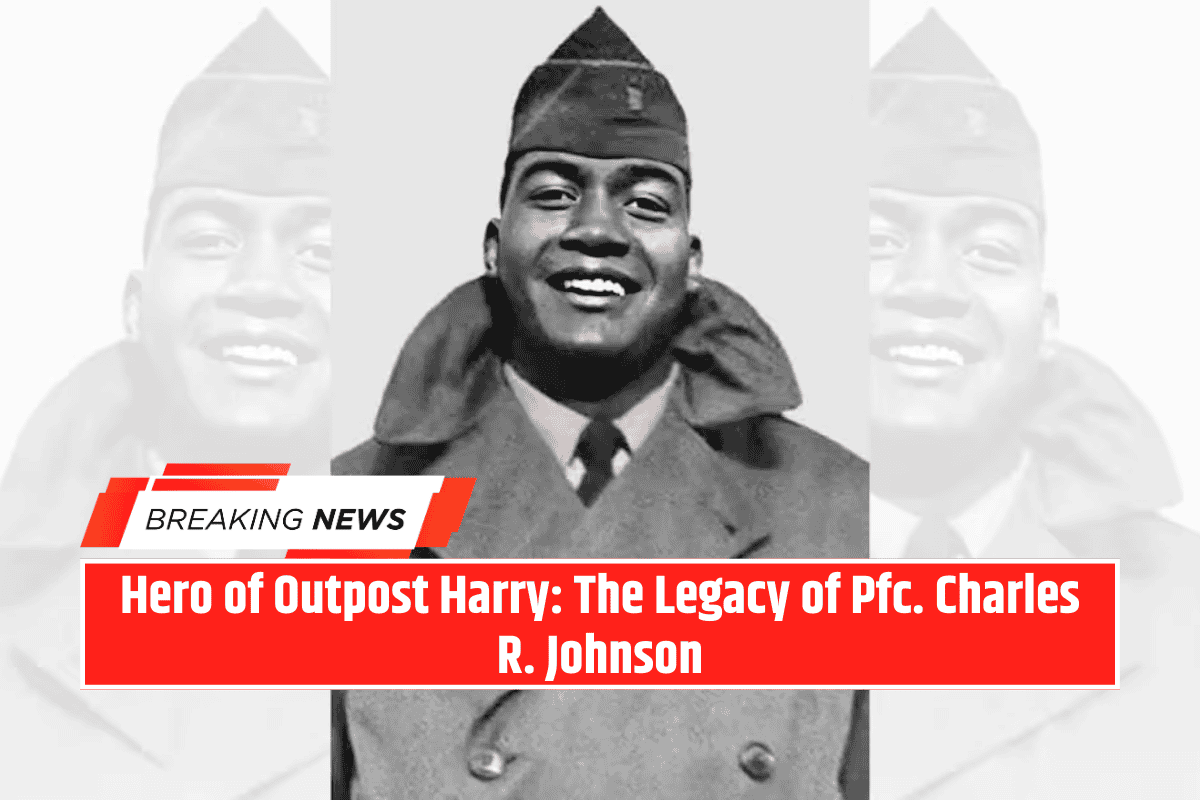Charles Robert Johnson, born on August 11, 1932, in Millbrook, New York, was the son of Robert and Pearl Johnson. Known as “Buddy” among his friends, he excelled both academically and athletically.
At Millbrook High School, he lettered in football, shone in basketball and baseball, and showcased his musical talent as a trumpet player and choir singer.
Completing his senior year at Arlington High School in LaGrangeville, he was elected class vice president. In 1951, Johnson enrolled at Howard University, where he joined the football team before his studies were interrupted by the draft in 1952.
Enlistment and Assignment
Although his mother urged him to pursue a musician’s specialty in the Army, Johnson chose the infantry, believing it was his duty to fight alongside other sons of America. After training, he was assigned as a Browning Automatic Rifleman to Company B, 15th Regiment, 3rd Infantry Division.
By June 1953, his unit was tasked with defending Outpost Harry alongside the Greek “Sparta” Battalion, commanded by Lt. Col. Georgios Koumanakos.
The Battle of Outpost Harry
Outpost Harry was a strategic hill located about 60 miles northeast of Seoul, in the Iron Triangle. On June 10, 1953, Chinese forces launched a massive assault, outnumbering the defenders 30 to 1.
By morning, nearly all of the American defenders had been killed or severely wounded. Johnson’s squad was sent in as reinforcements.
On the night of June 11, Johnson sustained a wound from an artillery blast but refused evacuation. He moved across the battlefield, administering first aid, rescuing the wounded, and dragging comrades—including his high school classmate Pvt.
Donald Dingee—to safety. In between these rescues, he fought off Chinese soldiers in hand-to-hand combat.
When supplies dwindled, Johnson scavenged weapons and ammunition to redistribute among his squad. As the Chinese prepared for another assault, he stepped outside his bunker to shield his comrades, holding off the enemy until a grenade claimed his life in the early hours of June 12. His sacrifice saved at least nine to ten fellow soldiers.
Recognition and Honors
The fierce battle for Outpost Harry ended on June 18, 1953, with Chinese forces suffering heavy losses. Johnson’s heroism went unrecognized for decades, but in 2010 he was posthumously awarded the Silver Star.
On January 3, 2025, President Joe Biden awarded Johnson the Medal of Honor posthumously, presenting it to his sister, Juanita P. Mendez.
Additional honors to Johnson’s legacy include:
- A bronze statue depicting his rescue of Pvt. Dingee at Arlington High School.
- The Johnson Fitness Center at Fort Stewart, Georgia.
- His final resting place at Nine Partners Cemetery, Millbrook, New York.
Legacy of Bravery
Pfc. Charles R. Johnson’s story embodies the values of courage, sacrifice, and duty. His decision to put himself in harm’s way to save others elevated him to the ranks of America’s greatest military heroes, ensuring that his legacy at Outpost Harry will never be forgotten.








